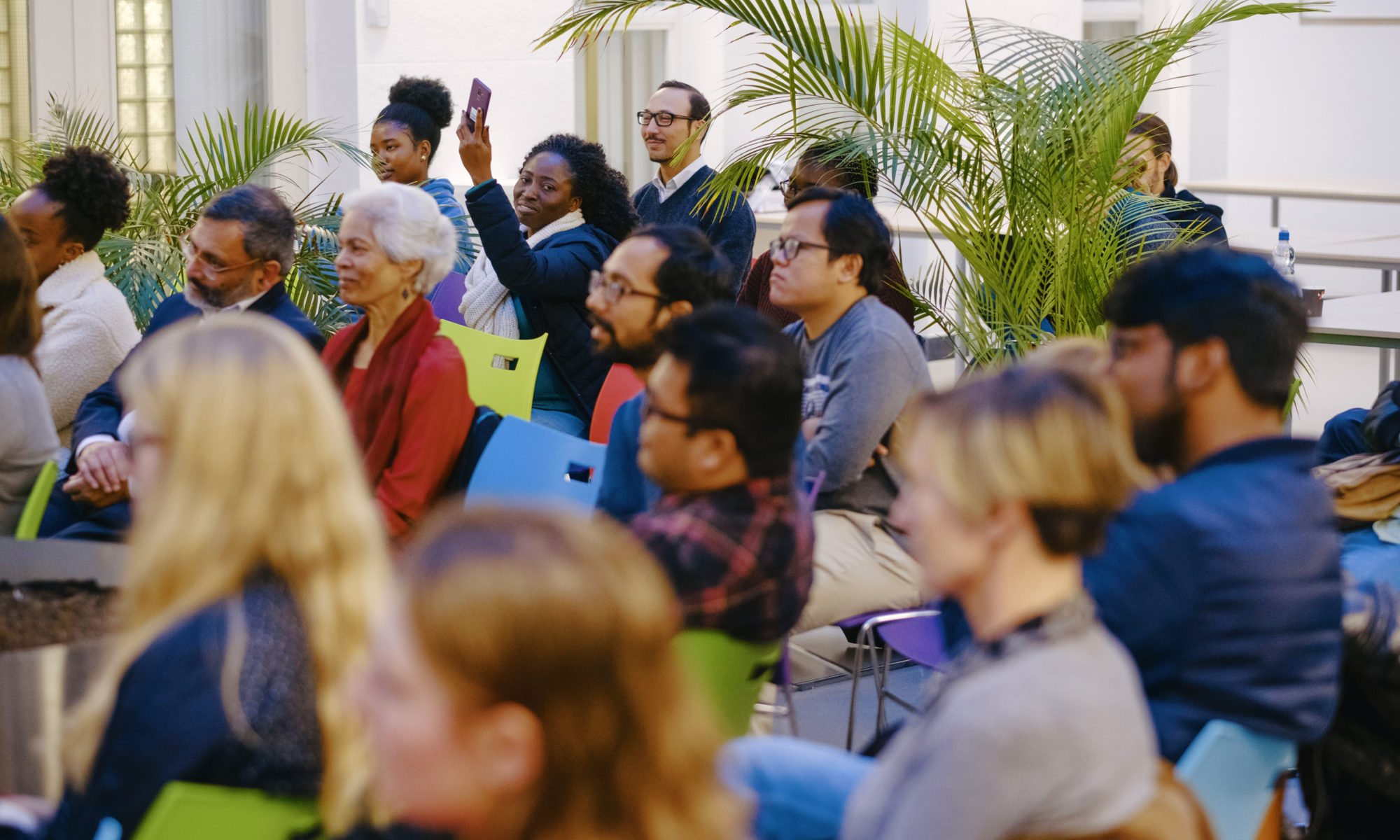By Kees Biekart, Basile Boulay, Susanne von Itter and Sushrutha Vemuri | EADI/ISS Blog Series
How can a conference contribute to solidarity, peace and social justice? Well, maybe by organizing it fully online. We never expected this to work so amazingly.
Let us be honest to you from the beginning: we have never organized an online conference before. We feel like we are inventing the wheel in many ways, because many things are absolutely new to us. We’ve never had to do this. But now that we have organized the EADI-ISS Conference 2021 #Solidarity2021, which is to start in just a few days, we know one thing for sure: we will never organize a conference again without providing substantial online participation facilities.
Of course, we did not realize this over a year ago when the pandemic emerged and the conference was postponed by one year. In March 2020, nobody had any experience in online conferencing. We believed that the pandemic would be over in a few months and that the conference could still be held in The Hague.
How naïve we were! By October 2020, it was clear to everyone involved that the pandemic would last much longer than a few months, and for many people worldwide probably more than over a year. So we decided to cancel our preparations for a face-to-face conference which would have taken place in five different venues, all closely together and located in The Hague’s city centre, with the ISS hosting the conference. This also meant no visits to peace and justice organizations in The Hague, no massive information market with our international Master’s students, and no gala ‘beach party’ to show off The Hague’s in all its splendour. Everything was going to happen online. And we had to make peace with it and work with it.
So we got inspired, first by positive experiences from other online conferences, and then by feedback from several conference panel convenors who had generated ideas about new online discussion formats after they had been forced to start teaching virtually. We realized that hundreds of EADI colleagues would have had the same experiences and routines in using online platforms. The entire conference was not going to take place on Zoom, as that leads to fatigue. But we came up with some other interesting ways of meeting online, including virtual coffee corners and a virtual social drinks corner that we tried out with student volunteers (where they had to bring their own drink and chat online).
Greater inclusion
But the main comparative advantage of an online conference was without doubt this: anybody far away from The Hague would be able to join the meeting. Financial constraints, let alone visa- or virus-related restrictions, were suddenly neutralized by an online setting. By early May, we saw the registration of Global South participants booming! Almost half of the nearly 700 expected participants will be non-European and/or based in the Global South. This was never seen before in the history of EADI’s international conferences!
As a result, we started thinking about regional networking sessions, also to explore how we can strengthen linkages with institutes from the Global South. We expanded the list for the virtual visits to professional organizations to other Dutch cities: we now have a broad array of organizations involved in the conference that work on solidarity, peace and social justice in practice, all offering an engaging visitors’ programme. Many of these wish to have discussions about key developmental challenges with the conference participants.
In sum, there is an exciting programme with a wide array of panel discussions, workshops, and round tables. For two days, the Development Dialogue by and for PhD researchers will host over 15 sessions. There will be a special plenary with Asian Pacific speakers on ‘questioning development’ on Wednesday morning, meeting rooms for ISS Alumni, and a special exhibition by artists from Myanmar on the Raising Three Fingers campaign. And the final session will feature a non-facilitated ‘fishbowl’ session (never seen before online) to explore how our research practice has changed by the pandemic, and maybe also how it has changed ourselves as well!
This blog is also an invitation to all conference participants to write their own blog: about a key conference experience, a thriving discussion, or an afterthought after being online for four days with so many colleagues. Together with this post, they will all be part of the EADI-ISS blog series on Solidarity Peace and Social Justice, and will keep running for the next months.
Looking forward to seeing you all soon online at EADI’s 12th General Conference in the virtual reality of The Hague!
Basile, Susanne, Sushrutha, Kees (EADI-ISS Conference Team)
Basile Boulay is Senior Executive at EADI
Susanne von Itter is Executive Secretary at EADI
Kees Biekart is Associate Professor at the ISS
Sushrutha Vemuri is a Project Assistant at the ISS
This article is part of a series launched by EADI (European Association of Development Research and Training Institutes) and the Institute of Social Studies (ISS) in preparation for the 2021 EADI/ISS General Conference “Solidarity, Peace and Social Justice”. It has also been published on the ISS Blog

